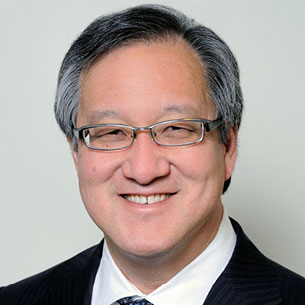"Value-Based Medicine," if not yet a term for the ages, is an increasingly embraced concept for our times of diminishing health care resources, a time for doing more with less. The risks of not taking this reality seriously are borne out by Sequestration, another newly coined term in our vocabulary, and a warning that the failure of public discourse to find solutions to difficult economic and political problems leaves no one unscathed. Value-Based Medicine, in turn, has spawned a new category of research, Comparative Effectiveness Research, designed to provide an evidentiary basis for practicing less costly health care.
But "Value" does not exist solely in terms of dollars and cents. Oncologists know better than most physicians that how one patient values a therapeutic option will differ from the next patient, and that even the same patient will evolve their perception of value along their cancer journey as they develop awareness of the cancer system and what cancer treatment entails. The words that speak to this are Patient Preferences and Shared Decision Making. Value-Based Medicine must accommodate flexibility in how individuals determine value, and the health care team must learn how to better frame the discussion so that patient preferences can be identified and articulated. We do ourselves a disservice when we speak of a statistically positive study of a new drug where the survival benefit could be measured in days.
To that point, I am reminded of a conference where James Holland challenged Mort Coleman on the lack of clinical significance of a study result that nevertheless achieved its statistical target. When Dr. Coleman called on Dr. Holland to define clinical significance, his reply was, and I paraphrase, “Mort, you don’t go to every lymphoma conference, that’s statistically significant, but it’s always clinically significant when you do.” Once again ahead of his time.
Within ASCO, we have started a dialogue on what comprises Value. This was one of the three topics debated by the ASCO Board of Directors at our annual March strategic planning meeting. ASCO’s Value in Cancer Care Task Force will take on the question of what is a meaningful response from the perspective of the patient. With the American Academy of Hospice and Palliative Medicine, we are positioned to study how the values and preferences of patients and families change as care becomes increasingly futile. ASCO is preparing a second “Top Five” list of medical tests or interventions that have little added value in oncology care as part of the American Board of Internal Medicine Foundation effort to encourage disciplined use of resources across medical specialties.
But Value is not only about what we should or should not do. It is also about how we deliver healthcare, how operationally “Lean” we are, to draw upon yet another coin of the realm. The value-based decision on the relative merits among different choices of chemotherapy unlocks only a part of the value proposition. There is value to be gained by driving efficiency in the delivery of care, patient centric value that reduces patient wait time, increases throughput in the infusion suite, and liberates staff to spend their time performing “Value-Added” work that improves the patient experience. Value Stream Mapping, Gimba Walks, Rapid Process Improvement Workshops, Change Management. . . the lexicon goes on. For oncology practices, operational efficiency is where we have the most control over our own resource allocation and in a world of bundled payments where a key component of practice survivorship exists.
ASCO’s Public Policy develops from our understanding of what is best for patients and necessary for sustaining the delivery of equitable cancer care and the pursuit of cancer research. Fostering a dialogue within the ASCO community of what value means to patients, providers, and health care systems will help shape the message we bring to the larger national debate on health care reform.


Recent posts